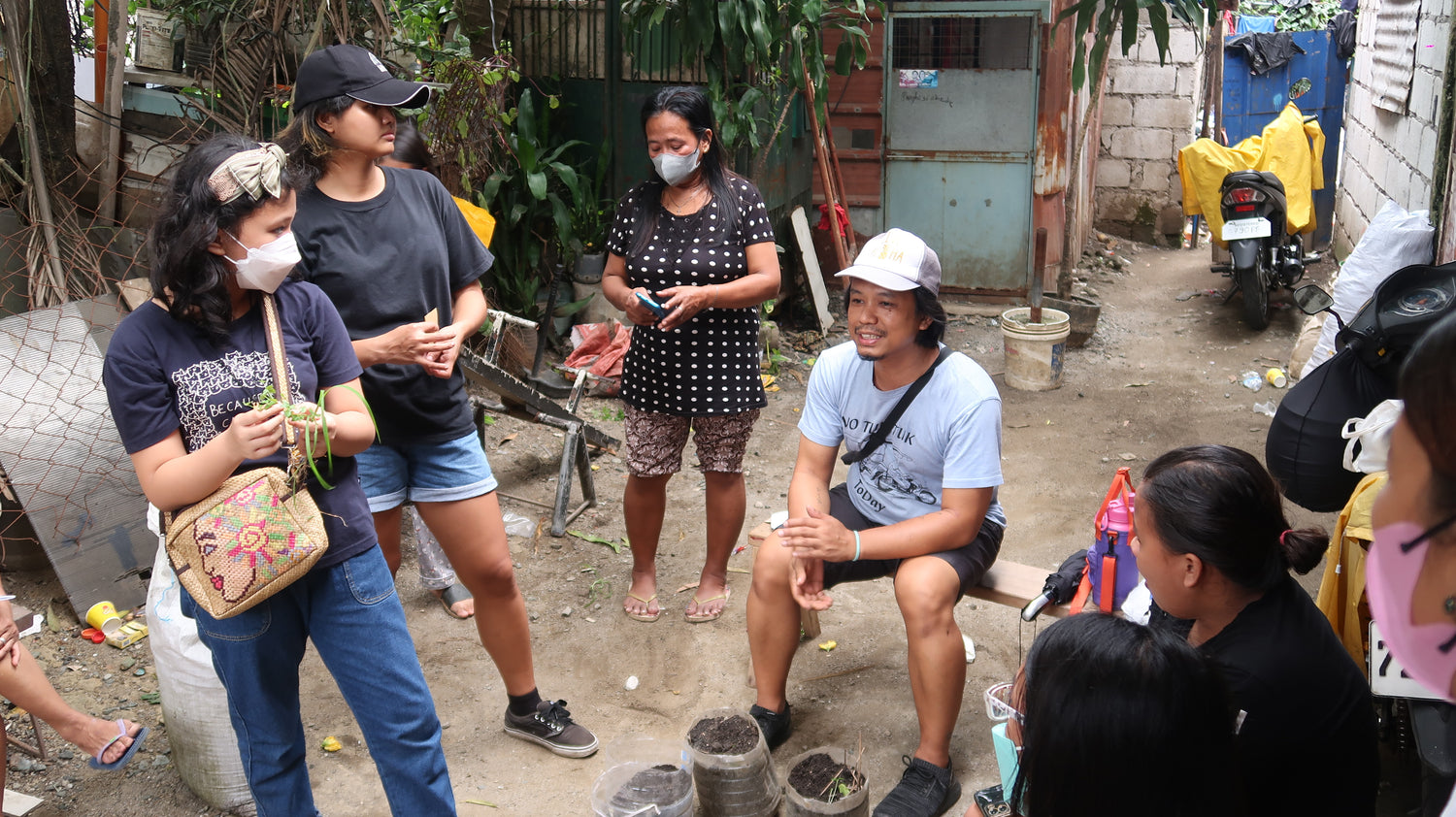Food Today, Food Tomorrow

Food Today, Food Tomorrow is borne of the multiple crises that the urban poor face in Metro Manila.
We saw the Covid-19 pandemic usher in unprecedented hunger and poverty for millions. Despite the hardships and deprivation that the urban poor faced, violent evictions and displacement continued. These days prices are skyrocketing, joblessness has increased, agriculture is buckling under the climate emergency, and the threat of a food crisis looms.
Good Food for All
Food is essential to our ability to survive and thrive in this age of emergency. Not just any food though. We need food that is safe, nutritious, delicious, and affordable. Food that is fair and just, and does not exploit the labor that brings it to our plates.
How can we do this? Our work at Good Food is about showing what is possible.
Food Today, Food Tomorrow recognizes the broader context within which the problem of food insecurity plays out–a world where the economic, social, and political rights of the urban poor are neglected, where their agency and power over their lives are persistently undermined.
Through Food Today, Food Tomorrow, we contribute to the growing community of practice around food, community, and solidarity with the urban poor.
Powered by people-led community kitchens and community gardens, we hope to build the collective agency and capacity of people and communities over the food they want to grow, eat, and nourish themselves, their families, and communities with.
Food Today’s Kitchens of Collective Care

Food Today is a weekly community kitchen in partnership with Pinagkaisang Lakas ng Mamamayan - Payatas (United People’s Strength - Payatas), a people’s organization composed of members of the urban poor fighting for their economic rights in the city.
Food Today started as Lingap Maralita, a food relief project that we put together with friends and volunteers during the early days of the pandemic. As the world’s longest and strictest lockdown was enforced, millions of low-income households with no savings to rely on and lived a hand-to-mouth existence did not know where their next meal would come from. “Mas mauna pa kaming mamatay sa gutom kaysa sa virus” was the widespread sentiment of the country’s poor. Some were forced to violate lockdowns so that they could feed themselves and their families, and were violently dispersed and arrested.
Lingap Maralita was an immediate response to the growing hunger and delay in aid that we were seeing all around. With widespread support from citizens all over the country, what we envisioned as a one-week food relief activity ran for 15 weeks. Local rice and fresh organic produce were sourced from small farmers who suddenly saw their markets closing and were distributed to 500 urban-poor households every week. Leaders and mothers from the urban poor communities led the Kusinang Bayan (community kitchen) to show that the poor, despite lacking in resources, have something to contribute to the project. In fact, because of the Kusinang Bayan, sometimes the project exceeded its weekly target number of households.
Food Today continues the early work of Lingap Maralita and is powered by Solidarity Share, a way for Filipino families with the means and social safety nets to support families with very limited means and little to no social protection by purchasing farm shares at a subsidized rate.
Through purchasing Solidarity Shares, you help us supply fresh organic fruits and vegetables to select urban poor communities in Quezon City. Community leaders and members of PLM - Payatas visit different urban poor areas and conduct community kitchens as part of their program to advocate for their right to housing.
Food Tomorrow’s Gardens of Solidarity

Through Food Tomorrow, we train urban poor growers on agroecological farming to help them sustain their own food gardens and become farmer-trainers themselves.
Food Tomorrow started when leaders of PML - Payatas expressed their interest in a more sustainable way to secure food–by growing it themselves. Like a lot of urban poor, some of them were either farmers who migrated to the city in search of a better life or had experience growing food but found the cost of seeds and soil prohibitive, and the lack of viable space in Payatas discouraging.
Food Tomorrow provides participating households with a garden starter kit that includes organic soil, vermicompost, shade nets, seeds, and cuttings of organic vegetables. It also offers training and guidance on urban food gardening over a 16-week program on urban agroecology including topics on plant health and soil nutrition, composting, seed saving, organic plant concoctions, and healthy food preparation.
Food Tomorrow promotes the use of agroecology. More than a way to grow food in a manner that is holistic and regenerative, agroecology is a socio-political movement that connects these production principles and practices to the broader goal of systemic change.
Agroecology recognizes the specific environment, struggles, and experiences of food producers and how it places importance on the practical, appropriate, and collective. The community of practice in the urban poor communities creates a body of knowledge and practice on urban agriculture that is responsive to the realities and constraints of the urban poor. It is, as La Via Campesina says, “a tool for the collective transformation of reality.”
Support our community kitchen through purchasing Food Today Solidarity Shares
Help the construction of our food gardens through Food Tomorrow Solidarity Shares

Join our Friends of Farmers Circle
Friends of Farmers gathers conscientious eaters who wish to help Filipino farmers and support our campaigns and advocacy work. Receive updates and ways you can participate.
